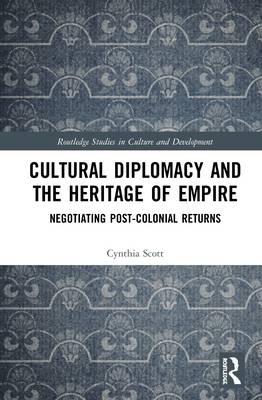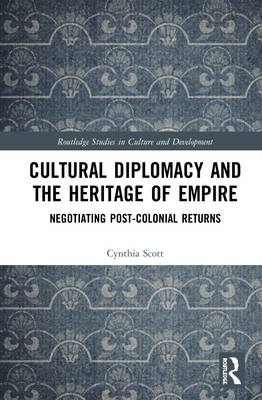
- Retrait gratuit dans votre magasin Club
- 7.000.000 titres dans notre catalogue
- Payer en toute sécurité
- Toujours un magasin près de chez vous
- Retrait gratuit dans votre magasin Club
- 7.000.0000 titres dans notre catalogue
- Payer en toute sécurité
- Toujours un magasin près de chez vous
Description
Cultural Diplomacy and the Heritage of Empire analyzes the history of the negotiations that led to the atypical return of colonial-era cultural property from the Netherlands to Indonesia in the 1970s. By doing so, the book shows that competing visions of post-colonial redress were contested throughout the era of post-World War II decolonization.
Considering the danger this precedent posed to other countries, the book looks beyond the Dutch-Indonesian case to the "Elgin (Parthenon) Marbles" and "Benin Bronzes" controversies, as well as recent developments relating to returns in France and the Netherlands. Setting aside the "universalism versus nationalism" debate, Scott asserts that the deeper meaning of post-colonial cultural property disputes in European history has more to do with how officials of former colonial powers negotiated decolonization, while also creating contemporary understandings of their nations' pasts. As a whole, the book expands the field of cultural restitution studies and offers a more nuanced understanding of the connections drawn between postcolonial national identity making and the extension of cultural diplomacy.
Cultural Diplomacy and the Heritage of Empire offers a new perspective on the international influence of the UNGA and UNESCO on the return debate. As such, the book will be of interest to scholars, students and practitioners engaged in the study of cultural property diplomacy and law, museum and heritage studies, modern European history, post-colonial studies and historical anthropology.
Spécifications
Parties prenantes
- Auteur(s) :
- Editeur:
Contenu
- Nombre de pages :
- 216
- Langue:
- Anglais
- Collection :
Caractéristiques
- EAN:
- 9780815382317
- Date de parution :
- 29-11-19
- Format:
- Livre relié
- Format numérique:
- Genaaid
- Dimensions :
- 155 mm x 236 mm
- Poids :
- 521 g

Les avis
Nous publions uniquement les avis qui respectent les conditions requises. Consultez nos conditions pour les avis.






